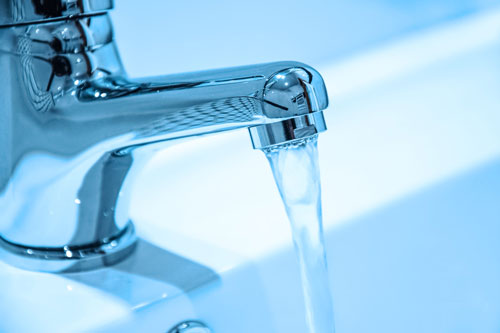What Are VOCs?
VOCs, otherwise known as “volatile organic compounds,” are chemicals found in water that can trigger adverse health conditions. Though these can be tricky to eliminate, there are plenty of treatment solutions available. If you have any concerns about VOCs, you should tackle the issue before it causes any health problems for you and your family.
How Do VOCs End Up in Your Drinking Water?
Although VOCs might be unfamiliar to most, they are very common chemicals used in a variety of everyday items. These chemicals are typically used as additives in products like paint, gasoline and household cleaners. Commercially, they are also used in the manufacturing of cars and electronic equipment. Since these chemicals are so widely used, it’s not surprising that they end up in unintended places. They tend to evaporate easily, and this is part of the reason they’re found in drinking water.
If your home is positioned close to industrial plants, landfills, gas stations, agricultural areas or railroads, VOCs are more likely to exist in your water supply.
Types of VOCs include:
- THMs (Trihalomethanes): a solvent used to disinfect water and refrigerate appliances
- MTBE (Methyl tert-butyl ether): a chemical found in gasoline, which enters water supplies through underground storage facilities
- PCE (Perchloroethylene): a liquid used in dry-cleaning, spot removers, aerosols, paint, household cleaning products and more
Health Issues Associated with VOCs
Unfortunately, VOCs are associated with a range of health complications such as liver and kidney damage and neurological issues. Effects, however, are dependent on the level of exposure and how long an individual was exposed to these chemicals. According to the Environmental Working Group, the following VOCs are carcinogenic:
- 1,2,3-Trichloropropane
- Vinyl chloride
- Tetrachloroethylene (PCE or PERC)
- Carbon tetrachloride
- Benzene
- 1,1,2-Trichloroethane
- 1,4-Dioxane
- 1,2-Dichloroethane
- Styrene
- 1,2-Dichloropropane
- Trichloroethylene (TCE)
- Dichloromethane (methylene chloride)
The federal government assigned legal limits to 21 VOCs between 1987 and 1992, but there have been no updates to these limits since then.

Testing Guide for VOCs
If you are concerned about VOCs in your water supply, it’s always best to get your water tested ASAP. At Atlantic Blue Water Center, we offer free water tests and analyses. Schedule your test with our certified experts today!
If you’re curious about how VOCs are tested with different types of water supply sources, we’ve also provided a helpful guide below.
- Well water: We recommend that you receive a VOC test for your well water every 3-5 years at a minimum. If you live near a high-risk area (nearby gas stations, dry-cleaning locations, manufacturing facilities or landfills, for instance), you should test your water more often.
- City Water: More than likely, your city water facility uses chlorine to treat the local water supply. When disinfectants like chlorine interact with other forms of organic matter, VOCs begin to develop. For city water tests, a VOC panel is highly recommended.
What to know about plastic piping: Do you have plastic PVC piping systems in your home? Unfortunately, these can leech harmful VOCs into your water. Get your water tested ASAP and reach out to a water expert for treatment solutions.
What Water Treatment Products Are Available at Atlantic Blue Water Center?
You shouldn’t try to eliminate VOCs on your own using DIY methods. Unfortunately, many homeowners believe that boiling water sterilizes it completely. Some VOCs may be eliminated this way, but others can be released into the air. This leads to additional air quality problems. At Atlantic Blue Water Center, we offer a variety of water treatment options to mitigate the hazardous effects of VOCs. No matter what issue you are experiencing, we can introduce you to a treatment product that works for your home. For removing VOCs, reverse osmosis systems and carbon filters are highly effective. Some of our products include:
- CareClear Pro
- CareSoft Elite
- CareSoft Elite RC
- Iron Pro
- Puromax Reverse Osmosis
- TotalCare Water Conditioner
- ONE ™ Cartridge Filter Tank
Contact us today to find out more about our treatment options and how they work to eradicate VOCs. If you require any maintenance for your water treatment system after installation, we’ll help you resolve it quickly. You and your family need top-notch water you can trust for cooking, bathing and laundry.
If you have any questions or concerns regarding our services, don’t hesitate to reach out to us. Any potential issues with your water should be addressed as soon as possible, and our experts are here to help.
Learn More about VOCs with Atlantic Blue Water Center
We provide water treatment and water softening solutions for homeowners that want a cleaner water supply and water that is free from hazardous carcinogens that can contribute to increased cancer risk. We’re also focused on providing additional education on water treatment, water quality, and issues associated with water contaminants. Call us at (410) 751-9200 to schedule your in-home water testing appointment today.
